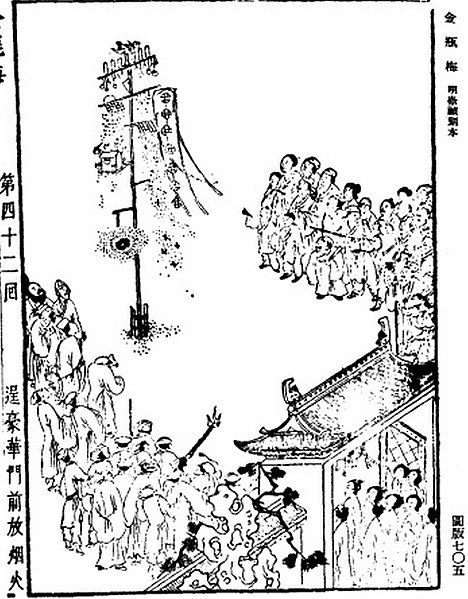 The first thing we need to talk about is the physical location of Rome and the peoples directly around it. […] Rome in its earliest history was, essentially, a frontier city, placed at the very northern end of Latium, the region of Italy that was populated by Latin-speakers. Rome’s position on the Tiber River put it at the cultural meeting place of the Etruscan (and Faliscian) cultural zone to the North, Latium to the South and Umbrian-speaking peoples in the Apennine uplands to the North-East. To the West, of course, lay the Sea, which by Rome’s legendary founding date was already beginning to fill with seaborne merchants, particularly Phoenician and Greek ones […] These patterns of settlements and cultural zones are both attested in our literary sources but also show up fairly clearly in the archaeology of the region.
The first thing we need to talk about is the physical location of Rome and the peoples directly around it. […] Rome in its earliest history was, essentially, a frontier city, placed at the very northern end of Latium, the region of Italy that was populated by Latin-speakers. Rome’s position on the Tiber River put it at the cultural meeting place of the Etruscan (and Faliscian) cultural zone to the North, Latium to the South and Umbrian-speaking peoples in the Apennine uplands to the North-East. To the West, of course, lay the Sea, which by Rome’s legendary founding date was already beginning to fill with seaborne merchants, particularly Phoenician and Greek ones […] These patterns of settlements and cultural zones are both attested in our literary sources but also show up fairly clearly in the archaeology of the region.
Rome itself, a cluster of hills situated at an important ford over the Tiber (and thus a natural trade and migration route running north-south along Italy’s Western side), was already inhabited by the close of the Neolithic with small settlement clusters on several of its hills. As you might well imagine, excavating pre-historic Rome is difficult, due to the centuries of development piled on top of it and the fact that in many cases pre-historic evidence must exist directly below subsequent ruins which are now cultural heritage sites. Nevertheless, archaeology sheds quite a lot of light. That archaeological evidence allows us to reject the sort of “empty fields” city foundation that Livy implies. Rather than being “founded”, the city of Rome as we know it formed out of the political merger of these communities (the technical term is synoecism from Greek συνοικισμóς, literally “[putting] the houses together”). There is, importantly, no clear evidence of any archaeological discontinuity between the old settlements on the hills and the newly forming city; these seem to have been the same people. The Palatine hill, which is “chosen” by Romulus in the legend and would be the site of the houses of Rome’s most important and affluent citizens during the historical period, seems to have been the most prominent of these settlements even at this early stage.
A key event in this merging comes in the mid-600s, when these hill-communities begin draining the small valley that lay between the Capitoline and Palatine hills; this valley would naturally have been marshy and quite useless but once drained, it formed a vital meeting place at the center of these hill communities – what would become the Forum Romanum. That public works project – credited by the Romans to the semi-legendary king Tarquinius Priscus (Plin. Natural History 36.104ff) – is remarkably telling, both because it signals that there was enough of a political authority in Rome to marshal the resources to see it done (suggesting somewhat more centralized government, perhaps early kings) and because the new forum formed the meeting place and political center for these communities, quite literally binding them together into a single polity. It is at this point that we can really begin speaking of Rome and Romans with confidence.
What does our archaeology tell us about this early community at this point and for the next several centuries?
The clearest element of this early polity is the Latin influence. Linguistically, Rome was of Latium, spoke (and wrote their earliest inscriptions) in Latin and it falls quite easily to reason that the majority of the people in these early hilltop communities around the Tiber ford were culturally and linguistically Latins. But there are also strong signs of Etruscan and Greek influence in the temples. For instance, in the Forum Boarium (between the Tiber and the Palatine), we see evidence for a cult location dating to the seventh century, with a temple constructed there in the early sixth century (and reconstructed again towards the end of that century); votive offerings recovered from the site include Attic ware pottery and a votive ivory figurine of a lion bearing an inscription in Etruscan.
Archaeological evidence for the Sabines is less evident. Distinctive Sabine material culture hasn’t been recovered from Rome as of yet. There are some clear examples of linguistic influence from Sabine to Latin, although the Romans often misidentify them; the name of the Quirinal hill, for instance (thought by the Romans to be where the Sabines settled after joining the city) doesn’t seem to be Sabine in origin. That said, religious institutions associated with the hill in the historical period (particularly the priests known as the Salii Collini) may have some Sabine connections. More notably, a number of key Roman families (gentes in Latin; we might translate this word as “clans”) claimed Sabine descent. Of particular note, several of these are Patrician gentes, meaning that they traced their lineage to families prominent under the kings or very early in the Republic. Among these were the Claudii (a key family in Roman politics from the founding of the Republic to the early Empire; Liv. 2.16), the Tarpeii (recorded as holding a number of consulships in the fifth century), and the Valerii (prominent from the early days of the Republic and well into the empire; Dionysius 2.46.3). There seems little reason to doubt the ethnic origins of these families.
So on the one hand we cannot say with certainty that there were Sabines in Rome in the eighth century as Livy would have it (though nothing rules it out), but there very clearly were by the foundation of the Republic in 509. The Sabine communities outside of Rome (because it is clear they didn’t all move into Rome) were absorbed in 290 and granted citizenship sine suffrago (citizenship without the vote) almost immediately; voting rights came fairly quickly thereafter in 268 BC (Vel. Pat. 1.14.6-7). The speed with which these Sabine communities outside of Rome were admitted to full citizenship speaks, I suspect, to the degree to which the Sabines were already by that point seen as a kindred people (despite the fact that they spoke a language quite different from Latin; Sabine Osco-Umbrian was its own language, albeit in the same language family).
The only group we can say quite clearly that there is no evidence for in early Rome from Livy’s fusion society are the Trojans; there is no trace of Anatolian influence this early (and we might expect the sudden intrusion of meaningful amounts of Anatolian material culture to be really obvious). Which is to say that Aeneas is made up; no great surprise there.
But Livy’s conception of an early Roman community – perhaps at the end of the sixth century rather than in the middle of the eighth – that was already a conglomeration of peoples with different linguistic, ethnic and religious backgrounds is largely confirmed by the evidence. Moreover, layered on top of this are influences that speak to this early Rome’s connectedness to the broader Mediterranean milieu – I’ve mentioned already the presence of Greek cultural products both in Rome and in the area surrounding it. Greek and eastern artistic motifs (the latter likely brought by Phoenician traders) appear with the “Orientalizing” style in the material culture of the area as early as 730 B.C. – no great surprise there either as the Greeks had begun planting colonies in Italy and Sicily by that point and Phoenician traders are clearly active in the region as well. Evidently Carthaginian cultural contacts also existed at an early point; the Romans made a treaty with Carthage in the very first year of the Republic, which almost certainly seems like it must have replaced some older understanding between the Roman king and Carthage (Polybius 3.22.1). Given the trade contacts, it seems likely that there would have been Phoenician merchants in permanent residence in Rome; evidence for such permanently resident Greeks is even stronger.
In short, our evidence suggests that were one to walk the forum of Rome at the dawn of the Republic – the beginning of what we might properly call the historical period for Rome – you might well hear not only Latin, but also Sabine Umbrian, Etruscan and Greek and even Phoenician spoken (to be clear, those are three completely different language families; Umbrian, Latin and Greek are Indo-European languages, Phoenician was a Semitic language and Etruscan is a non-Indo-European language which may be a language isolate – perhaps the modern equivalent might be a street in which English, French, Italian, Chinese and Arabic are all spoken). The objects on sale in the markets might be similarly diverse.
I keep coming back to the languages, by the by, because I want to stress that these really were different people. There is a tendency – we will come back to it next time – for a lot of modern folks to assume that, “Oh well, these are all Italians, right?” But the idea of “Italians” as such didn’t exist yet (and Italy even today isn’t quite so homogeneous as many people outside of it often assume!). And we know that the different languages were mirrored by different religious and cultural practices (although material culture – the “stuff” of daily life, was often shared through trade contacts). Languages thus make a fairly clear and easy marker for a whole range of cultural differences, though – and we will come back to this as well – it is important to remember that people’s identities are often complex; identity is generally a layered, “yes, but also …” affair. I have only glanced over this, but we also see traces of Latin, Etruscan, Greek and Umbrian religious practice in early Roman sanctuaries and our later literary sources; Phoenician influence has also been posited – we know at least that there was a temple to Uni/Astarte in Pyrgi within 30 miles of Rome so Phoenician religious influence could never have been that far away.
We thus have to conclude that Livy is correct on at least one thing: Rome seems to have been a multi-ethnic, diverse place from the beginning with a range of languages, religious practices. Rome was a frontier town at the beginning and it had the wide mix of peoples that one would expect of such a frontier town. It sat at the juncture of Etruria (inhabited by Etruscans) to the north, of Latium (inhabited by Latins) to the South, and of the Apennine mountains (inhabited by Umbrians like the Sabines). At the same time, Rome’s position on the Tiber ford made it the logical place for land-based trade (especially from Greek settlements in Campania, like Cumae, Capua and Neapolis – that is, Naples) to cross the Tiber moving either north or south. Finally, the Tiber River is navigable up to the ford (and the Romans were conscious of the value of this, e.g. Liv 5.54), so Rome was also a natural destination point for seafaring Greek and Phoenician traders looking for a destination to sell their wares. Rome was, in short, far from a homogeneous culture; it was a place where many different peoples meet, even in its very earliest days. Indeed, as we will see, that fact is probably part of what positioned Rome to become the leading city of Italy.
(For those looking to track down some of these archaeological references or get a sense of the source material, though it is now a touch dated, The Cambridge Ancient History, Vol 7.2: The Rise of Rome to 220 B.C., edited by F.W. Walbank, A.E. Astin, M.W. Frederiksen, and R.M. Ogilvie (1990) offers a fairly good overview, particularly the early chapters by Ogilvie, Torelli and Momigliano. For something more suited to regular folks, when I teach this I use M.T. Boatwright, D.J. Gargola, N. Lenski and R.J.A. Talbert, The Romans: From Village To Empire (2012) and it has a decent textbook summary, p. 22-42, covering early Rome with particularly good reference to the archaeology)
Bret Devereaux, “Collections: The Queen’s Latin or Who Were the Romans? Part I: Beginnings and Legends”, A Collection of Unmitigated Pedantry, 2021-06-11.













